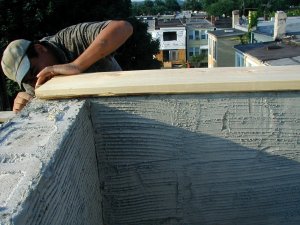
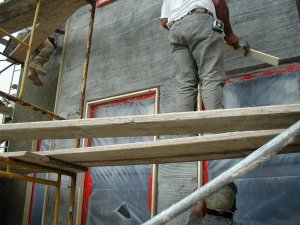
for the stucco. A ground establishes a straight line as well as the wall thickness.
A two by ten is just right- 9-1/2" wide.
8" block+3/4" stucco+3/4" stucco on other
side equals 9 1/2" exactly.
Wood strips are set using strings vertically
at the outside corners, or arrises.
If you haven't seen it on my site before, the arrises are the outside corners in plastering.
Window strips are set using strings at top
and bottom of strip.
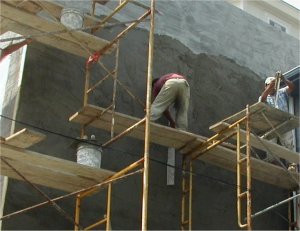
Walls are straightened using straight-edges
called rods. This is called rodding off the
wall.
Mynor rods wall side to side holding rod
vertically. Juan C. (right) scrapes excess mortar from rod onto mortar board.
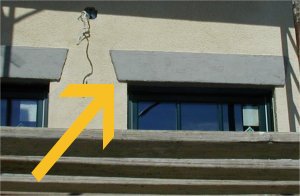
to create the illusion of supporting weight.
The old houses here in Capitol Hill have
cast stone lintels that look just like this.
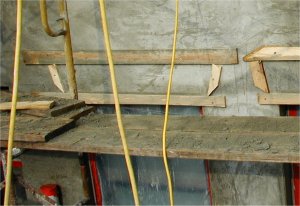
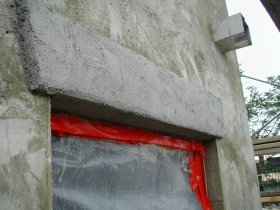
filled with metal lath and cement mortar.
La Habra stucco, mixed double strength and troweled real rough for a stone like effect.
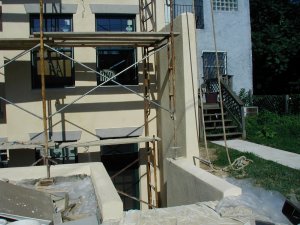
to shed water. It makes a nice Santa Fe look.